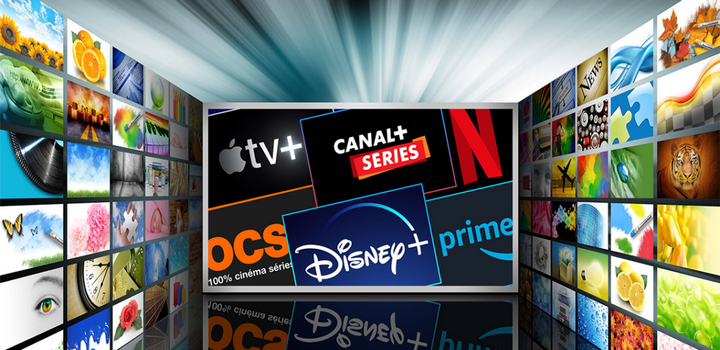Understanding IPTV: Revolutionizing How We Consume Television
In an age where streaming services dominate the entertainment landscape, meilleur iptv (Internet Protocol Television) has emerged as a transformative technology that redefines how we consume television. By delivering content over the internet rather than through traditional satellite or cable systems, IPTV offers a more flexible and user-centric viewing experience. This article explores the fundamentals of IPTV, its benefits, challenges, and its future in the rapidly evolving media landscape.
What is IPTV?
IPTV stands for Internet Protocol Television, a method of delivering television programming using internet protocols rather than conventional broadcasting methods. Unlike traditional television, which relies on radio frequency signals or satellite transmissions, IPTV uses a broadband internet connection to deliver content directly to viewers’ devices, such as smart TVs, computers, tablets, or smartphones.
How IPTV Works
IPTV operates through a series of steps:
- Content Acquisition: IPTV providers source content from various channels, networks, and studios. This can include live broadcasts, video-on-demand (VOD), and archived programming.
- Encoding and Compression: The content is then encoded and compressed into a digital format suitable for transmission over the internet. This ensures that the data can be delivered efficiently and at high quality.
- Delivery: The encoded content is transmitted over the internet using internet protocols. IPTV relies on high-speed broadband connections to ensure smooth streaming.
- User Access: Viewers access IPTV content through a set-top box or a compatible device with an internet connection. They can browse channels, search for specific shows, and select content to watch.
- Streaming: The selected content is streamed to the user’s device in real-time, allowing for instant access to live TV or on-demand programming.
Types of IPTV Services
IPTV services can be categorized into three main types:
- Live Television: This includes real-time broadcasting of television channels. Viewers can watch shows, sports events, and news as they happen, just like traditional TV.
- Video on Demand (VOD): VOD services allow viewers to choose from a library of content and watch it at their convenience. This model is similar to popular streaming services like Netflix or Hulu.
- Time-Shifted Television: This feature allows viewers to watch previously aired content. Users can pause, rewind, or record live broadcasts to view later.
Benefits of IPTV
IPTV offers numerous advantages over traditional television systems:
- Flexible Viewing: With IPTV, viewers can watch content on various devices, making it easy to enjoy programming anywhere with an internet connection.
- Customization: IPTV services often provide personalized content recommendations based on viewing habits, allowing users to discover new shows and movies tailored to their preferences.
- Cost-Effectiveness: Many IPTV services offer competitive pricing compared to traditional cable packages. Users can choose from various subscription plans, often without hidden fees.
- Interactivity: IPTV enables interactive features such as on-screen guides, program recommendations, and the ability to pause and rewind live television.
- High-Quality Streaming: With advancements in internet speeds and video compression technologies, IPTV can deliver high-definition (HD) and even 4K content.
Challenges Facing IPTV
Despite its many benefits, IPTV also faces several challenges:
- Internet Dependence: IPTV requires a stable and high-speed internet connection. Users in areas with poor internet infrastructure may experience buffering and interruptions.
- Content Licensing: IPTV providers must navigate complex licensing agreements to legally stream content. This can limit the availability of certain channels or shows.
- Security Concerns: As with any internet-based service, IPTV can be vulnerable to piracy and unauthorized access. Providers must implement robust security measures to protect their content and users.
- Regulatory Issues: The legality of IPTV varies by region, and providers must comply with local regulations, which can complicate operations.
The Future of IPTV
The future of IPTV appears promising, as advancements in technology continue to enhance the user experience. With the growing popularity of smart TVs and mobile devices, more viewers are turning to IPTV services for their entertainment needs. Additionally, the integration of artificial intelligence and machine learning in content recommendation systems can further personalize viewing experiences.
Moreover, as internet speeds improve and 5G technology becomes more widespread, IPTV will likely become even more accessible and reliable. This could lead to the emergence of new business models, such as ad-supported IPTV services or bundled packages that combine traditional and streaming offerings.
Conclusion
IPTV is revolutionizing the way we consume television, offering a flexible, interactive, and personalized viewing experience. As technology continues to advance, IPTV services are poised to become a dominant force in the media landscape, challenging traditional broadcasting methods and shaping the future of entertainment. For viewers seeking convenience and choice, IPTV presents an exciting opportunity to enjoy their favorite content on their terms.

